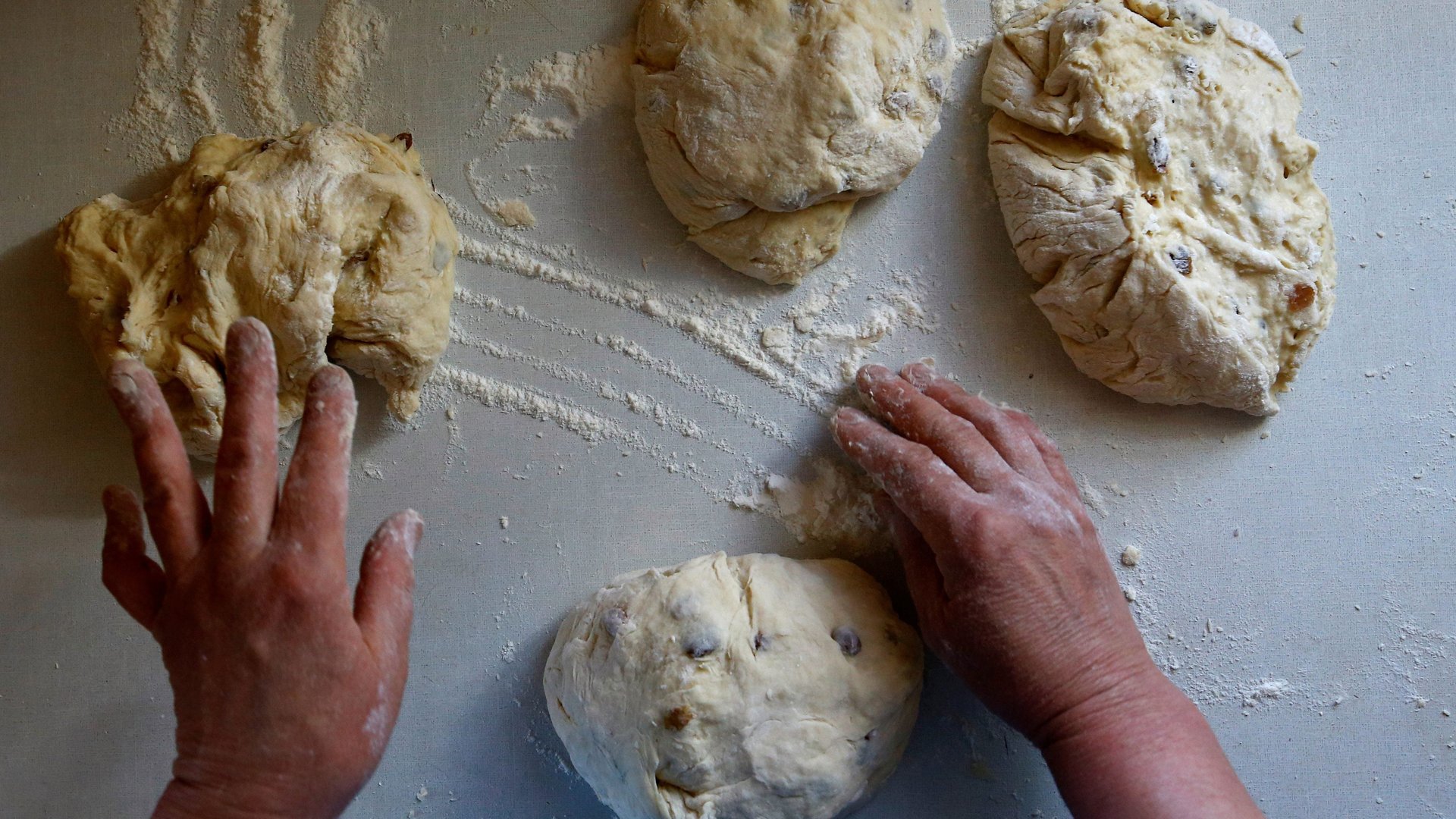Ox Tales: A fantastic food podcast without recipes, tools, or techniques
It took Edna Holmgren three tries to become a Pillsbury Bake-Off finalist. She started out with a novel idea—a marshmallow, wrapped in pastry dough—and stuck with it, entering the contest three years in row, each time modifying her recipe just a bit. When she finally won in 1969 with her Magic Marshmallow Crescent Puffs, Holmgren—who later became Edna Walker—emerged as an instant Bake-Off legend. That’s just the beginning of the story that Laura Shapiro, food historian, weaves in episode one of Ox Tales, the new food podcast from the Oxford Symposium on Food and Cookery, the oldest and most distinguished conference dedicated to investigating the culture and history of food.


It took Edna Holmgren three tries to become a Pillsbury Bake-Off finalist. She started out with a novel idea—a marshmallow, wrapped in pastry dough—and stuck with it, entering the contest three years in row, each time modifying her recipe just a bit. When she finally won in 1969 with her Magic Marshmallow Crescent Puffs, Holmgren—who later became Edna Walker—emerged as an instant Bake-Off legend. That’s just the beginning of the story that Laura Shapiro, food historian, weaves in episode one of Ox Tales, the new food podcast from the Oxford Symposium on Food and Cookery, the oldest and most distinguished conference dedicated to investigating the culture and history of food.
There are no recipes or cooking tips on Ox Tales. Instead, it’s the kind of storytelling where you find yourself so mesmerized by what’s happening that you miss your subway stop or forget which exit you were supposed to take while listening. On each episode Anna Sigrithur, the producer and host, speaks with presenters from past symposiums, tracing a story they’re passionate about.
Shapiro compares industrial food giants like Pillsbury and much-lauded chefs who practice molecular gastronomy. Guillemette Barthouil, a third generation foie gras farmer explores the idea of “quantum foods.” Fozia Ismail, a British-Somali social anthropologist discusses the pop-up restaurant she started for fellow Somalis and how it was fetishized by white foodies. This is the kind of stuff Ox Tales delves into.
“Part of what we’re trying to do is give people a sense of the excitement there can be in talking about these things,” Naomi Duguid, author and Oxford Symposium trustee, told me over the phone. “Any discussion of food brings politics in, in lots of ways.”
Each year the symposium invites food historians and writers, amateurs and academics alike, to submit papers of up to 5,000 words to present at a summer festival at St. Catherine’s College in Oxford, UK. Each festival is organized around a theme, which range from quite specific to very broad—this year’s is “Seeds;” in 2019 it will be “Food and Power.” The first six episodes of the podcast—which launched April 18, and will make a new episode available weekly—are drawn from a variety of past themes, as will season two, which will come out this fall.
These are not dry academic musings—some presenters are academics, but the themes and presentations are far juicier than your typical dissertation. Food, as Duguid explained, is the perfect way in to discussions about identity, race, families, politics, and history. On some level, everyone thinks about and can relate to food and those quotidian qualities make it a natural way in to complicated, and personal stories.
Duguid, who has written about food culture from Vietnam to Western China and beyond, emphasized that because everyone eats, food is a great democratizer, and a tool for discovering what people care about. ”When I’m working on books…I’m not threatening, I’m just interested in bread…nobody sees me as poking my nose into tender or delicate things, it’s just the everyday,” she said. “So it’s a really neutral place to start inquiring or learning.”

If you do want a recipe, to go along with Ox Tales’ deep dives into history and politics through the lens of deliciousness, here are Edna’s Magic Marshmallow Crescent Puffs.